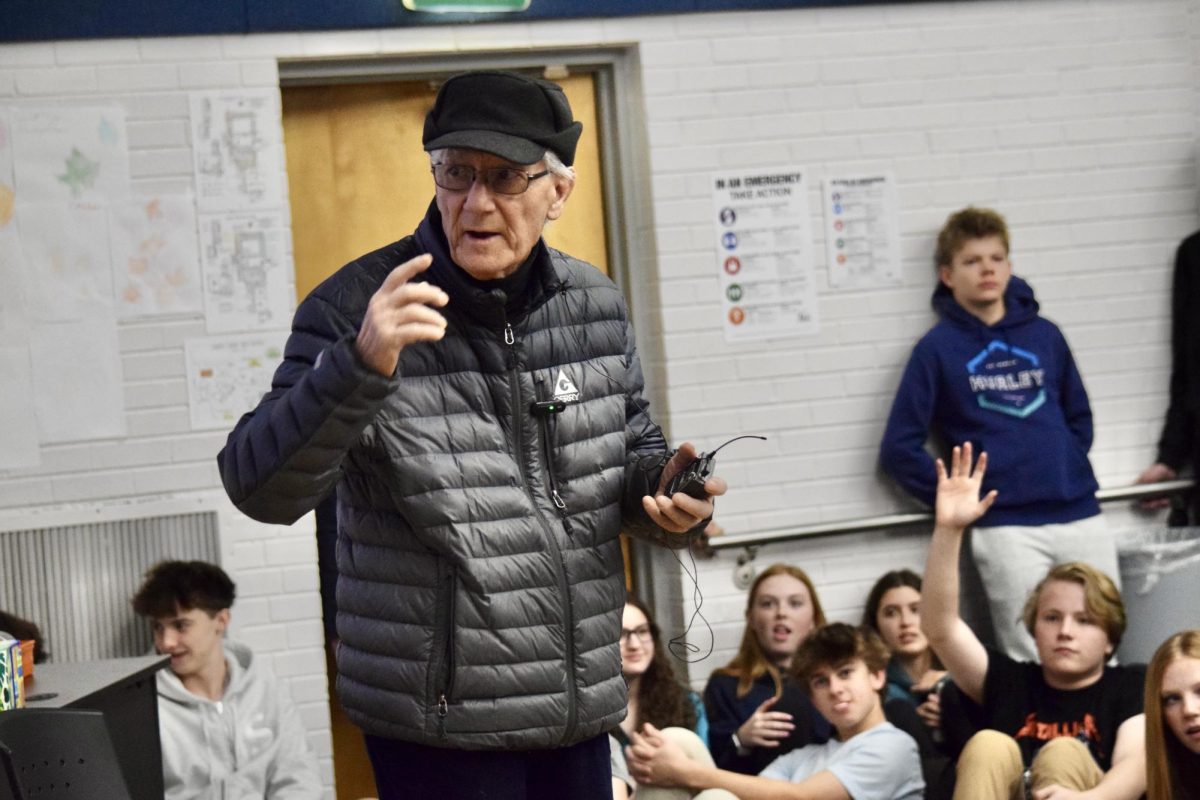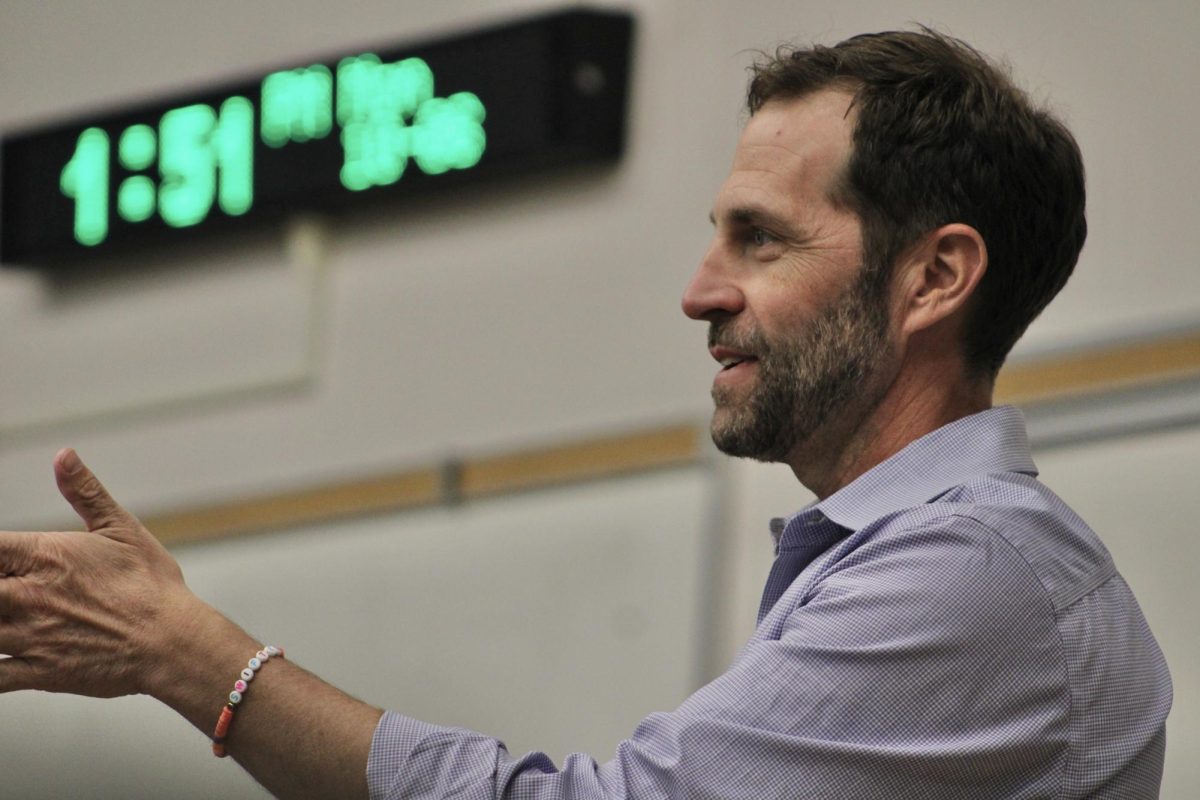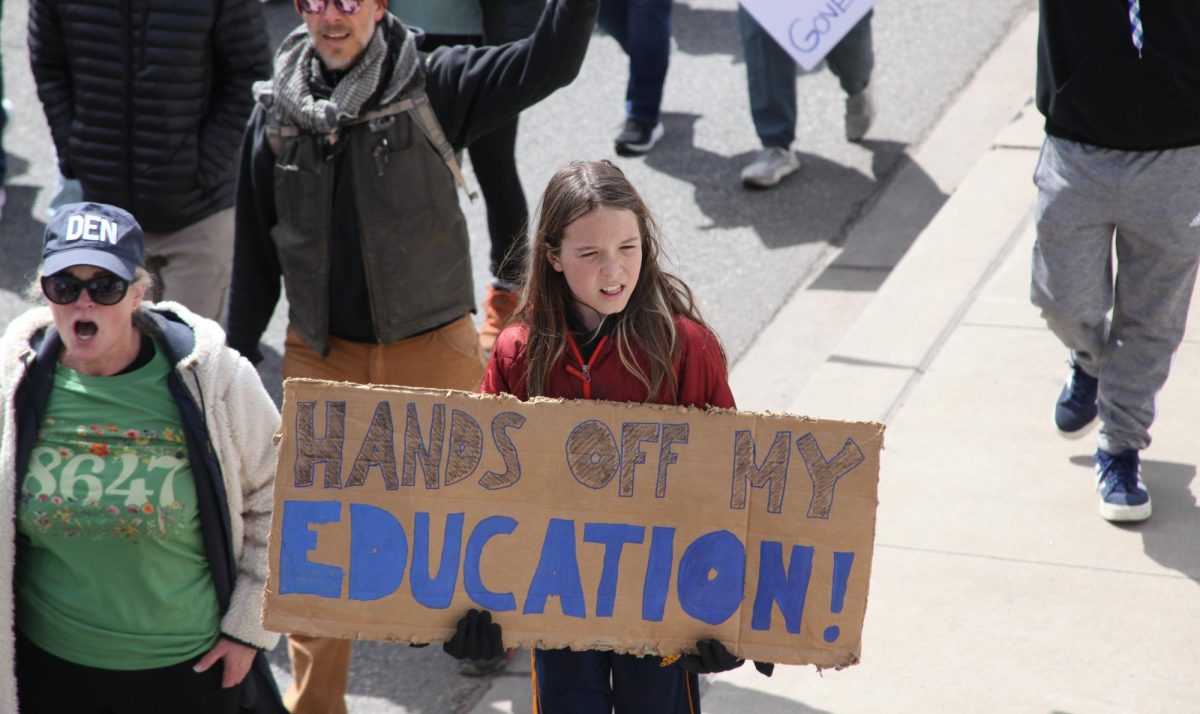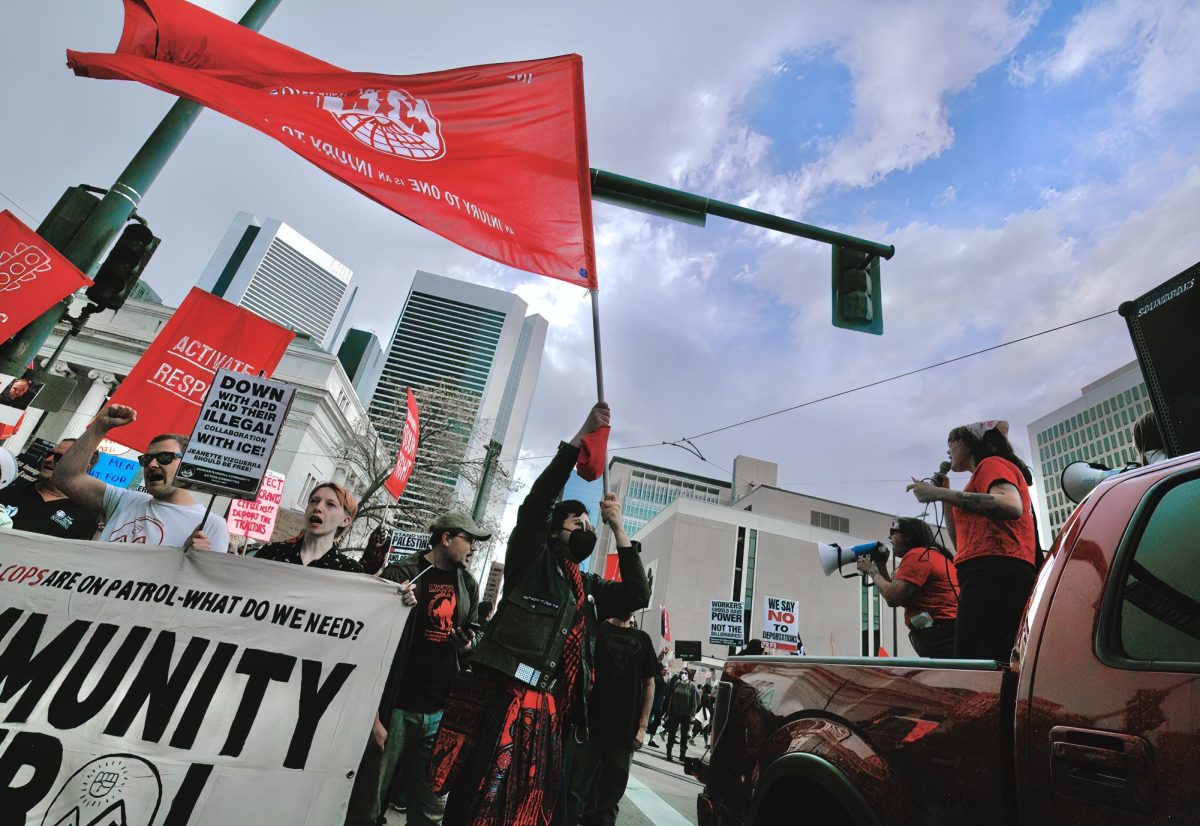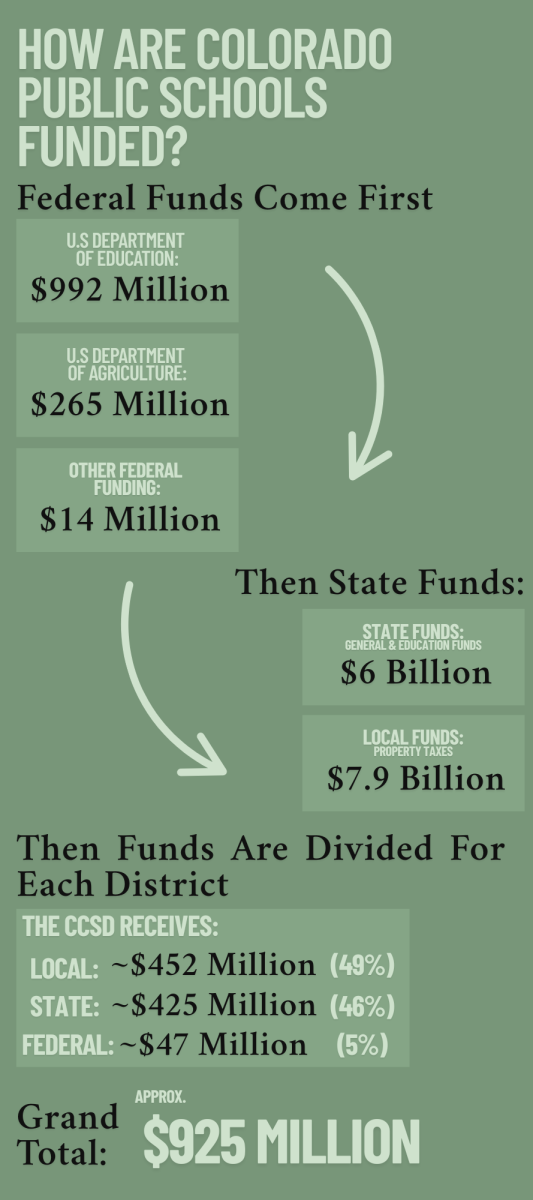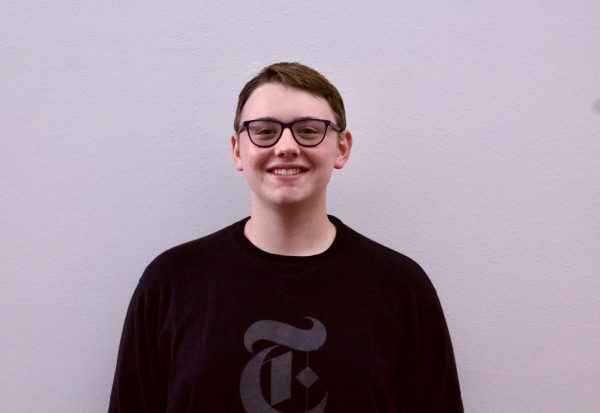There was barely any room left in Shillinglaw on Jan. 27 when Oscar Sladek, a Holocaust survivor, came to speak on International Holocaust Remembrance Day, the memorial of the mass murder of millions of Jews under the Nazi regime.
Sladek told stories about living with his parents as German nationalism turned into antisemitism, hate began to spread, and finally the country became a dangerous place for him to be. He was forced to flee the Nazis, finally hiding away with his family as World War II raged.
“Young people need to hear what happened during the Holocaust and the reasons and learn something about humanity,” Sladek, a native Slovakian, said. “A civilized group can turn overnight and start hating somebody else? That’s what happened to me.”
The Jewish Student Connection Club (JSC) brought him in to speak to the sizable crowd. They partnered with Jewish Colorado, an organization that tries to connect Jews in Colorado with the community outside the state, all the way to Israel.
“It’s very important to hear the raw experience of the Holocaust from someone that actually lived through it and actually experienced it, because as time goes on, we’re gonna lose these survivors,” senior JSC member Sophia Eison said. “We’re gonna lose people that had that first hand experience and we’re going to lose that perspective over time.”
Senior JSC member Zach Thorner was the primary organizer. He wanted Sladek’s words to have an impression on students. “I hope students hear his message and believe in good and not in evil,” Thorner said.
Freshman attendee Kaleb Perez found the talk impactful, to hear it directly from an eyewitness.
“It’s valuable, because when you have someone that’s a primary source…it makes much more of an impact on your life,” Perez said. “ JSC did a great job. The speaker was amazing.”
Eison is worried by the existence of “Holocaust deniers,” a group of conspiracy theorists who claim the event was exaggerated or faked – she thinks speakers like Sladek can help solve that problem.
“People will continue to deny it,” Eison said. “People will continue to not understand the full extent of the Holocaust and not believe the true horrors of it. So having someone speak to our generation is incredibly important, so this generation can tell the next and so on.”
Holocaust denial is one instance of antisemitism in the 21st century, and though Thorner and Eison say it’s on the rise, Sladek believes you can’t compare modern day antisemitism to the hatred he saw as a child.
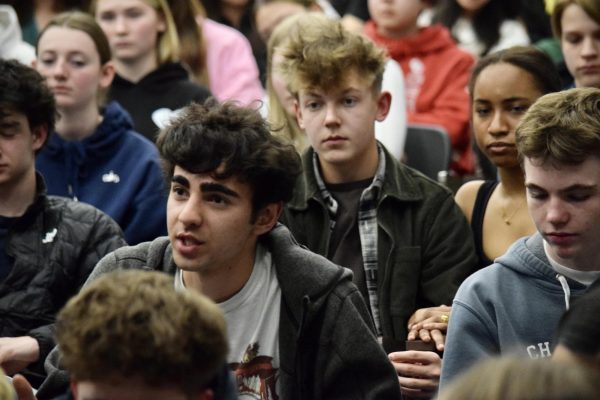
“I can’t compare antisemitism to another antisemitism,” he said. “[German] antisemitism was a real one, because there are people dying left and right, and I hope that [current] antisemitism is something temporary, as long as it doesn’t become a physical thing.”
Holocaust Remembrance Day is celebrated on the anniversary of the liberation of Auschwitz-Birkenau, the most deadly Nazi concentration camp. Sladek believes the day is important, especially for education.
“It’s important to talk about what happened and how it happened,” he said. “Learn how to love people…try to teach the other people to learn a lesson, that we are all equal.”
For Eison, it’s more important to hear real stories from real survivors than looking at documentaries or articles.
“We’re not watching a video of a Holocaust survivor speaking. We’re not looking at photos of people in the concentration camps. We were actually speaking to someone who holds that memory,” she said. “You don’t see it through photos, you don’t see it 100 percent through videos, but you see it through feeling the emotion and the presence of somebody that did live through it.”

